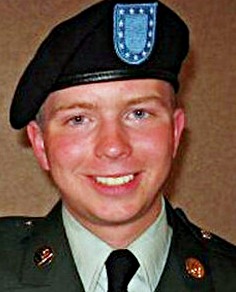The military judge presiding over the trial of Bradley Manning on Wednesday refused to dismiss all charges against the alleged whistleblower.
 Private Bradley Manning, detained for over a year for allegedly leaking classified government documents to the anti-secrecy website Wikileaks, is currently going through pre-trial hearings. Army Colonel Denise Lind on Wednesday denied a motion from the defense to dismiss charges against Manning, including that he aided al-Qaeda by leaking the documents.
Private Bradley Manning, detained for over a year for allegedly leaking classified government documents to the anti-secrecy website Wikileaks, is currently going through pre-trial hearings. Army Colonel Denise Lind on Wednesday denied a motion from the defense to dismiss charges against Manning, including that he aided al-Qaeda by leaking the documents.
In seeking the dismissal, Manning’s lawyers argued that prosecutors were too slow to share required information with the defense, and that they should therefore be inadmissible.
But the defense also claimed that the charge that Manning “aided the enemy” – a charge that carries the potential for life in prison – was unreasonable and vague.
“Because the enemy had access to Internet and may go to the website, they are indirectly aiding the enemy?” Manning’s defense attorney David Coombs asked. “Most common-sense knowledge people would know the enemy uses the Internet.”
Coombs argued that the charge implies that to aid the enemy, one needn’t have intent, or even know they’re committing a crime. But the Uniform Code of Military Justice’s definition of aiding the enemy says that a perpetrator, “without proper authority, knowingly … gives intelligence to or communicates or corresponds with or holds any intercourse with the enemy, either directly or indirectly.”
While refusing to drop the aiding the enemy charge, Judge Lind ” did state clearly that the government will have a burden of proving this ‘knowledge’ element,” writes Kevin Gosztola reporting from the trial.
Notions of fairness in the trial of Bradley Manning, though, seemed wishful back before the pre-trial hearing began when he was put into solitary confinement, forced to sleep naked, and subjected to other forms of abusive treatment. But Manning’s defense holds that punishing him for such crimes would have dangerous effects to First Amendment rights to free speech.


